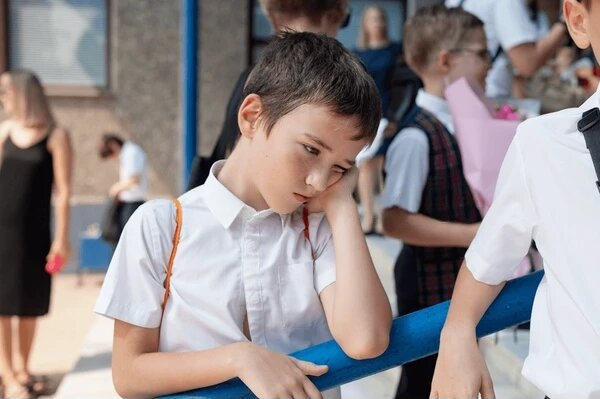SPECIALTIES
Childhood Depression and Getting Help
While depression is often associated with adults, children and teens can also experience this condition. Because children may not have the language skills to express their feelings verbally, it’s crucial for parents and caregivers to be aware of the signs and symptoms of childhood depression.
Challenges of Identifying Depression in Children
- Difficulties with Verbalization: Children often have a harder time verbalizing their emotions or experiences, making it difficult for them to communicate that they’re feeling depressed.
- Understanding Feelings: Younger children especially may not fully understand their own feelings and may struggle to identify themselves as sad or depressed.

Signs and Symptoms of Depression in Children
- Changes in sleep habits: This could include difficulty falling asleep, restless sleep, or sleeping more than usual.
- Clinginess: A child who is usually independent may become more clingy or demanding of attention.
- Defiant behavior: Some children may express their depression through negative behaviors like defiance or tantrums.
- Low energy: A depressed child may show a lack of interest in activities they once enjoyed and have lower energy levels overall.
- Outbursts: Emotional outbursts, either physical (hitting, kicking) or vocal (yelling, crying), can be a sign of underlying depression in children.
Signs and Symptoms of Depression in Teens
- Difficulty concentrating or focusing on school tasks: Teens with depression may experience problems with attention, focus, and academic performance.
- Withdrawing from friends and social activities: Social isolation is a common symptom of depression in teens. They may withdraw from friends, hobbies, or extracurricular activities they used to enjoy.
- Increased agitation or irritability: Teens with depression may become more argumentative, easily frustrated, or irritable.
- Feelings of guilt, worthlessness, or hopelessness: These negative thoughts and feelings about themselves and their future are a hallmark symptom of depression.
- Loss of interest in pleasurable activities: Activities that once brought them joy may no longer hold their interest.
- Increased conflict with family and friends: Strained relationships with family and friends can be a sign of depression in teens.
- Thoughts of hopelessness and suicide: If a teen expresses thoughts of suicide, it’s important to seek immediate professional help.
Getting Help for Childhood Depression
If you notice any of these signs and symptoms in your child, it’s important to seek help and visit my depression treatment center. Early intervention can make a significant difference in a child’s recovery and long-term well-being. There are many resources available to help children with depression, including:
- Anxiety Depression Symptoms: Understanding the signs and symptoms of both anxiety and depression can help you identify if your child needs professional help.
- Therapy for Depression: A therapist can provide a safe space for your child to express their feelings, learn healthy coping mechanisms, and develop a positive outlook.
- Depression Counseling: Similar to therapy for depression, a counselor can work with your child to address negative thoughts and emotions and develop strategies for managing their depression.
- Treatment for Depression and Anxiety: Sometimes, depression can occur alongside anxiety. A qualified therapist can create a treatment plan that addresses both conditions.
Additionally,
- Helping With Depression: There are things you can do at home to support your child with depression, such as creating a stable routine, encouraging healthy sleep habits, and providing opportunities for physical activity.
- Tapping for Anxiety and Depression: While not a mainstream treatment, some children find relief through Emotional Freedom Techniques (EFT), also known as tapping. It involves tapping on specific meridian points while focusing on negative thoughts or feelings.



